Unlocking East Africa’s Potential

The East African Crude Oil Pipeline Company (EACOP) Ltd, on the 24th of January 2023, received a license for the construction of the East African Crude Oil Pipeline.
The construction license will enable the company to kickstart the development of the 1,443km, 24-inch diameter thermal-insulated and buried crude oil pipeline.
The License was granted by the Ministry of Energy and Mineral Development (MEMD), following the application submitted on 1st July 2022, in compliance and accordance with Section 10 of the Petroleum (Refining, Conversion, Transmission, and Midstream Storage) Act 2013, Regulation 59 of the Petroleum (Refining, Conversion, Transmission, and Midstream Storage) Act 2016, and the East African Crude Oil Pipeline Special Provisions Act 2021 and found satisfactory.
Announcement of Route to Tanzania and commencement of Front End Engineering Design (FEED) studies.
Tanzania, Uganda
The Governments of the Republic of Uganda and The United Republic of Tanzania signed the Inter-Governmental Agreement (IGA) for the East African Crude Oil Pipeline Project. The signing of the IGA was a significant milestone that provided the foundation for the project as well as for other project agreements, including the Host Government Agreements, Shareholders’ Agreements and the Financing Agreements. This agreement marked the decision of the two countries to embark on developing the pipeline.
Tanzania, Uganda
The laying of the Foundation Stone at the end point of the EACOP Pipeline in Chongoleani Tanga Region
Tanzania, Chongoleani Tanga Region
Laying of the foundation stone at the starting point of the Pipeline - Kabaale Hoima District
Uganda, Kabaale Hoima District
Laying of the cross border mark-stone in Ruzinga Village Mutukula, Kyotera District.
Tanzania, Uganda
The Geophysical and Geo-Technical Surveys – Thorough and comprehensive site investigation for the design and construction.
Tanzania, Uganda
Environmental and Social Impact Assessments (ESIAs) - Tanzania.
Tanzania
Environmental and Social Impact Assessments (ESIAs) - Uganda.
Uganda
The Signing of the Host Government Agreements (HGAs).
Uganda
The Signing of the Host Government Agreements (HGAs)
Tanzania
The Signing of the Share Holders Agreement (SHA). The Shareholders’ Agreement signed between the East African Crude Oil Pipeline (EACOP) Limited, National Pipeline Company (U) Limited (Government of Uganda Shareholder), Tanzania Petroleum Development Corporation (Government of Tanzania Shareholder), Total Holdings International B.V. (Total Shareholder), and CEPME Limited (CNOOC Shareholder), setting out the terms governing each shareholder's rights, responsibilities, and obligations in the development, financing, construction, operation, and management of the EACOP project.
Tanzania, Uganda
Total Energies EP Uganda, CNOOC Uganda Limited, the Uganda National Oil Company (UNOC), and the Tanzania Petroleum Development Corporation (TPDC) announced the Final Investment Decision on the Lake Albert Development. The journey to FID started in 2006 with the confirmation of commercial oil and gas resources in Uganda. The announcement of FID was a significant milestone for the project and marked the beginning of the detailed Engineering, Procurement and Construction phase by the Joint Venture Partners and therefore the Commitment to deliver first oil by 2026
Tanzania, Uganda
The Establishment of the East African Crude Oil Company (EACOP) Ltd.
Tanzania, Uganda
Award of construction license for Uganda.
Uganda
Award of construction license for Tanzania.
Tanzania
First Pipeline Arrival
Tanzania
The Inauguration of the Thermal Insulation Plant (TIS Plant).
Tanzania
First Pipe Weld.
Tanzania
500KMs of Pipe Welded.
Tanzania, Uganda

© 2025 East African Crude Pipeline – All Rights Reserved
RR Pearl Tower One,Plot 1, Yusuf Lule Road
P.O.Box 135596,
Kampala, Uganda
Tel: +256 (0) 767 998 008,
Toll Free: 0800 216 000
Email: [email protected]
18th Floor, 10 Upper Bank Street, London, United Kingdom E14 5BF
Msasani Penninsula,
Plot no. 1403
Bains Avenue off Chole Road.
P. O. Box 23139,
Dar es Salaam, Tanzania
Email: [email protected]